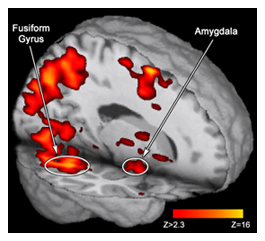Home

Here, we study both the behavioral characteristics and neural underpinnings of social cognitive functioning in individuals with severe mental illness. Social cognition broadly refers to the perception and processing of social information and includes many different skills such as identifying emotions from the facial expressions of others and determining what someone else may be thinking. For many individuals with mental illness, social interactions and relationships can be particularly challenging, and we now know that difficulties in social cognition contribute to real-world social outcomes. Our goal is to learn how social cognitive impairments affect the day-to-day lives of individuals with mental illness and to understand how brain functioning may contribute to these impairments. We use a variety of neuropsychological methods including fMRI (BOLD and ASL imaging), eye tracking, computerized assessment, and video analysis of social functioning. Ultimately, we hope that our work will inform the development of social cognitive and social functioning interventions that can help to improve the lives of individuals affected by mental illness.

Dr. Pinkham will be reviewing applications for the admission of a graduate student.
Our Goal Is To Learn How Social Cognitive Impairments Affect The Day-To-Day Lives Of Individuals With Mental Illness And To Understand How Brain Functioning May Contribute To These Impairments.
You must be logged in to post a comment.